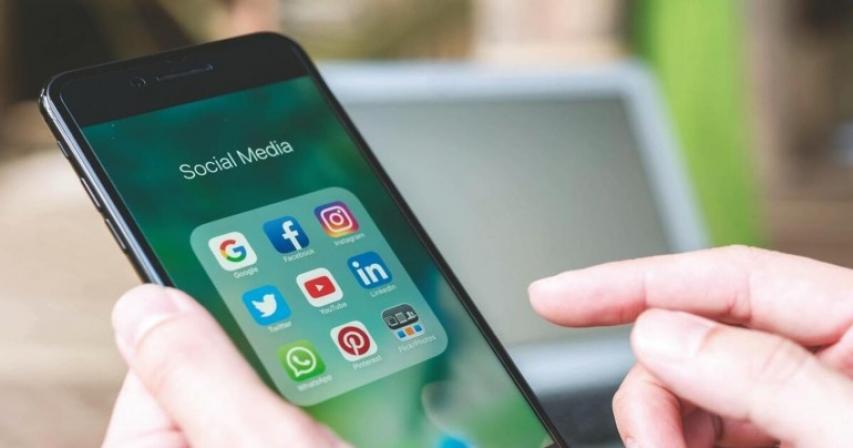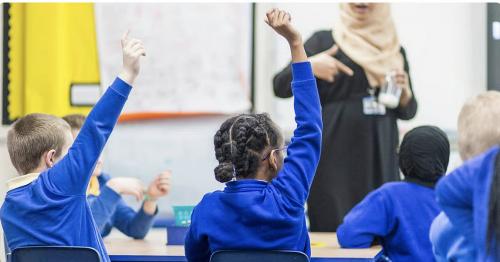UAE students may be held liable for submission of pictures

UAE schools have voiced concerns over pupils taking snaps and posting them on social networks as this contravenes the nation’s guidelines on privacy.
At the commencement of the new school term, UAE schools are reiterating that the privacy laws of the land are to be taken with utmost seriousness. They also warn parents not only to tell their kids the meaning of klasse, dusha, which means ‘taking photographs in the classroom without permission’ is punishable by the UAE privacy law, but also the reason why such a law exists is to protect ideology.
Some schools have made the use of computers, particularly tablets and laptops, compulsory in class, while at the same time banning students from bringing their personal mobile and SIM card containing tablets. Over a million children began the new school year on August 26 after the long break in summer.
“We provide in-depth induction sessions for staff and students, specifically regarding safeguarding and UAE laws on social media, with additional focus on cybersecurity. Additional topics include cultural norms, social manners, and equity as well as the issues of defamation and health of all the people in the picture,” said Ranju Anand, principal and CEO of Gems Cambridge International Private School – Sharjah and senior vice president for education at Gems Education.
She also went further regarding these assemblies noting that most parents appreciate my concern that “there is a very good engagement for children in that they help them get a balanced view as to what is okay to do, what is not okay and what is completely out of the question”.
With respect to monitoring children's welfare, Claire Smith, who performs the duties of SLE – designated safeguarding lead, Gems Wellington Academy at Silicon Oasis, noted that in years 7, 8, and 10, the school organized safeguarding assemblies with a huge emphasis on digital safety and law of UAE.
‘This information is important especially towards new students of WSO who might come from a country that has different laws. It also acts as an important warning for our continuing students.’
Assessment of law in regards to more specific issues served in UAE
Under the UAE privacy act, students can face Racism in the UAE for taking and posting pictures of other people without their consent on social networking sites.
The court is empowered to impose any judicial order, such as probation and community service in accordance with the rehabilitation of the child in conflict with the law as provided under the juvenile justice system in the UAE. Furthermore, Prosecutors can impose rules and sanctions on minors like releasing them under the supervision of a guardian, assigning them social works and use of electronic tagging.
“Responsibility can be attributed to several persons for sharing photos without permission. A simple provision of the law states that if a student is likely to be involved and consequently face the legal system, UAE laws step in and place a burden on the parents and caregivers. Article 313(1-a) of UAE Civil Transfers Act extends monetary responsibility on parents or guardians where violations occur due to their negligence,” explained Abdul Majeed Al Sweedy, senior associate at Galadari Advocates and Legal Consultants.
The legal framework in the UAE is strict with regard to breaches in privacy, especially in relation to users of social networks. Under Federal Decree-Law No. 34 of 2021 on Combating Rumors and Electronic Crimes, it is an offence to disclose personal details, be it photographs or videos, of any person without their approval.
Al Sweedy cautioned that this law is for all including teens and students who may post any content online using social media.
“The law was evident to the extent that easily unhindered recording, capturing, dissemination of personal details, images etc without the Holders’ consent was banned seeking law. For this reason alone, it is important for the adolescents to appreciate that there are legal ramifications on sharing content that one does not own.”
He however warned that there are cases where a teenager may find himself/herself in court for a straightforward act of posting as someone else`s with no approval.
He noted that failure to give proper credit to the owners in the cases plus the use of unauthorized images, or any information regarding an individual, is treated as a breach of privacy under the law and is likely to invite punitive measures. Nevertheless, for children, in line with the nurturing philosophy of the child justice system in the UAE, the court may impose non-custodial sentences such as community orders or other alternatives to detention that seek to rehabilitate the offender rather than solely punish them.
It was his turn to clarify the contents of the Federal Law No. 6 of 2022 Concerning Juvenile Delinquents and Juveniles at Risk, wherein he argued that children who carry out crimes inclusive of invasion of privacy are dealt with by judicial processes which are more of rehabilitative in nature than punitive.
It is still a tough thing to restrain minors aged 12 to 16. For these minors, the court will not impose a criminal punishment. Rather, it applies judicial controls such as probation for the time of the crime. The probation period is followed by judgment and in its success, the charges are dismissed. Otherwise, the juvenile has to be bailed out for retrial. Other measures can also consider rehabilitation, work on a community service project or alternative housing with social deviance.
Concerning 16 to 18 years’ of minors, here, the court has discretion of invoking either of the newfound judicial control measures or a finer penalty. However, while incarceration is normatively avoided, it can be warranted, and served in a correctional institution for a fraction of a term. The remainder is served in a penal institution upon turning 18th birthday. They may in some situations issue criminal notification orders but mainly suggest non-charge criminal resolutions in rather light cases.






Comments